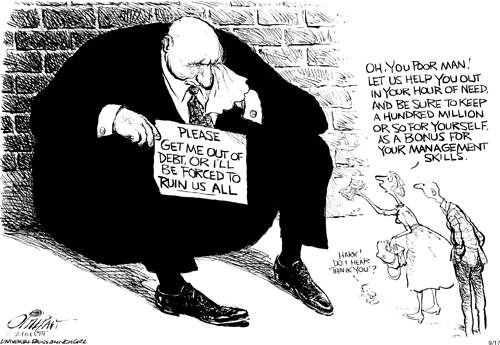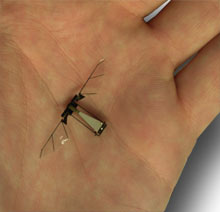

Lisa went to visit her folks on the 9th, and since then I've been hunkering down preparing three talks on My Favorite Numbers. It's been intense, exciting but lonely spending days trying to strip certain lovely ideas to their barest form, packing as much information as I can into pictures, hoping to blow away the audience with a kind of ascent from the simple to the elaborate without losing them in detail.
Luckily, when my airplane reaches its destination after a long journey I will be greeted (with any luck) by two of favorite folks: Tom Leinster from the University of Glasgow, who organized these talks, and Eugenia Cheng, now at Sheffield University. My pal Danny Stevenson, formerly a visiting assistant professor here at Riverside and now blessed with a permament position at Glasgow, will also be there. To top it off, Bruce Bartlett and Simon Willerton, both also from Sheffield, will also be there. Together, they constitute a substantial fraction of the British n-category revolution! But what makes it fun is that we're friends.

This afternoon I finally finished preparing the most elementary talk, on the number 5. As usual, it's a lot harder to design a good "elementary" talk than a good "advanced" one, since you can't make big assumptions about your audience: you have to avoid all the convenient professional jargon and get straight to the point. This requires a severe effort. Most of all, you have to remember what the point actually is! — why the subject was intriguing even before you became fatally enchanted by it.
These talk posters by Tom Leinster are great. They're like ads for a math rave.
Now I'm watching Hurricane Ike bear down on Galveston.
September 13, 2008
American political hysteria is rising as we approach the presidential
election. I can't resist becoming absorbed in it, but to avoid
contributing to it I will spare you my opinions. Let me just say
this: ignore polls of the "popular vote", since what matters
is the electoral vote. For constantly updated estimates of the
electoral vote, keep looking at this:
... except that the world financial system was crashing. The impact hasn't really hit yet; we'll see that in the months and years to come. Right now it's like titanomachy: little folks like us are watching gods and giants throw thunderbolts up in the clouds, but it will take a while for the fallout to filter down:

But now that it's happening, things are moving too quickly for adequate reflection. Just a few obvious thoughts:
Depending on how it's handled, the proposed 700-billion-dollar bank bailout could be an enormous transfer of wealth from taxpayers to the banking sector. Note: nobody is proposing to bail out the people who can't pay their mortgages. Instead, we'll be bailing out the banks that vastly multiplied this debt by passing it on to each other in complicated ways that nobody fully understands.
As President Bush plans it, this bailout will also hand enormous power to Treasury Secretary Henry Paulson, or whoever becomes his successor in January. Paulson was CEO of Goldman Sachs, and we can expect his successor to be similarly entwined in the financial sector, since nobody else understands the technical aspects of this business. Congress needs to impose enough oversight to keep the game honest. And I hope enough people demand serious reforms.
In the longer term, we can expect that the US government will be
saddled with one extra Iraq War's worth of debt. This
debt will mainly be owed to China and other fast-growing economies.
So, among other things, it represents another step in the decline of
US power and the rise of China.
September 25, 2008
Piano sales have been dropping in the US, thanks first to the
decline of the tradition of piano lessons, and more recently
to the sagging economy. The Riverside Press Enterprise
has an interesting article on this. Here's
a graph from there:

We can only imagine what will happen now.
September 26, 2008
A while back, Garrett Lisi pointed out a great video of someone flying over mountains in a wingsuit with jet engines. Now Yves Rossy has used such a contraption to fly across the English channel in less than ten minutes!
Speaking of flying things, check out this:

It's a robot fly! Great for spying on people. It was created by Robert Wood of Harvard. His research was paid for by the U. S. Defense Advanced Research Projects agency, who are developing stealth surveillance robots for battlefields and urban environments. Too bad he's not focusing more attention on positive uses for his cleverness.
Maybe this will shed some light on the crisis of crashing amphibian populations.
Anglerfish are fascinatingly ugly.

According to this book, thare about 27,000,000 slaves in the world today. How can we change this?
Try to relax and enjoy the crisis. - Ashley Brilliant
© 2008 John Baez
baez@math.removethis.ucr.andthis.edu